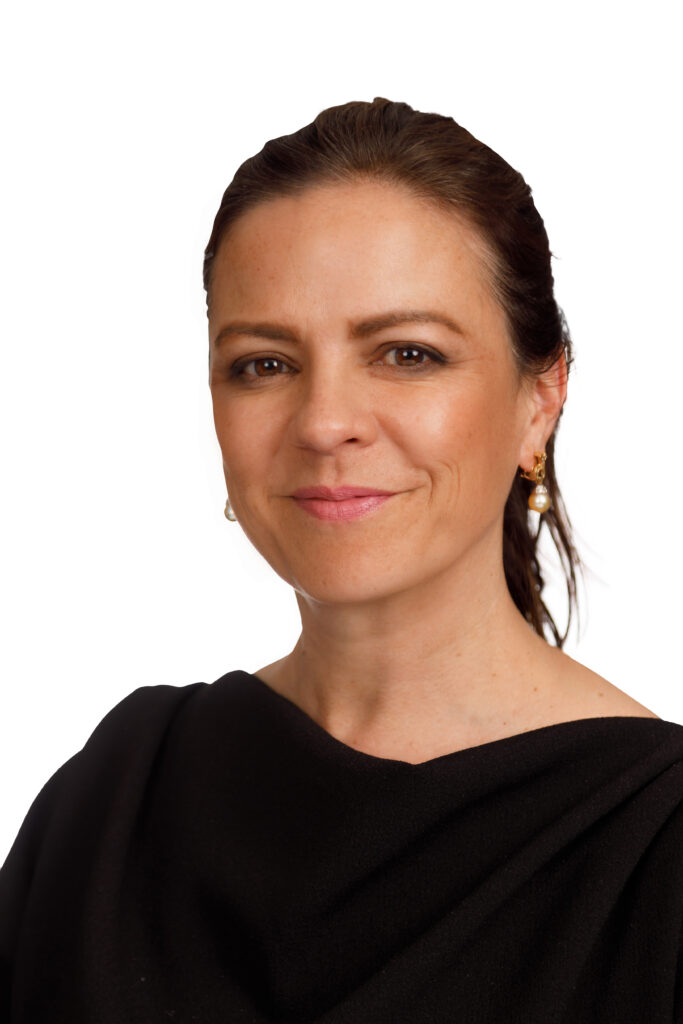"The home has a powerful ability to show spiritual realities through the material world," says Noelle Mering. A mother, philosopher and member of the Center for Public Policy and Ethics, she is author and editor at "Theology of Home".

This project includes a website and several books through which they want to show the beauty of family life. With practical advice, recipes and a daily newsletter, Mering and her colleagues accompany those who take care of the home to "find the eternal in the everyday".
Noelle is convinced that Catholic homes are places of apostolate, welcome and dialogue. In this interview, she explains the importance of the balance in the roles of father and mother, the reality of the "domestic Church" and the beauty of the family.
“Theology” is a term that seems distant and abstract. However, you join it to the word “home”, which is so close to us, and propose the “Theology of Home”. What exactly is this?
– I think it’s better encapsulated in the subtitle to our first book, which was “finding the eternal in the everyday”. The idea being that, as Catholics, we are deeply incarnational. We believe that spiritual realities are unveiled through the material world. And I think that home has a particular powerful ability to do that.
I think of it as the body of family, so that people that live within the home are not just aggregated by the walls around them, but rather that there is something that becomes the life of the family that’s lived in the physical experiences and environment of the home.
So, part of what we are exploring with Theology of Home books is that what we are doing here is really a foretaste of what we hope to have in Heaven. We are trying to create an environment where we can grow closer not only to one another, but closer to God through one another and also through our family and personal prayer lives, our ability to bring the outside world in through hospitality as sort of an apostolic, evangelical effort.
How can we make God present in our homes?
– A lot of it is in non explicit ways. I think that in caring deeply about home life, even to the point of taking seriously having order in our homes. That’s a sign that we are seeing that this is a place that we should treat with respect because of the relationships that are being nurtured in it.
Certainly I think that a clear way that happens that we sort of unmask or unveil God in the home is that it’s a really intimate environment, family life is, we tend to see each other at our worst, if we have faults we encounter them through the eyes of the people whom we lived with because we see ourselves through their eyes and that can be harrowing but it can also be wonderful because it means that we get to contend with our faults. And that struggle, that sense of “I’m going to truthfully recognize my weaknesses”, that is a very Catholic path of understanding the nature of God.
It’s such a human temptation to deflect from our faults and responsibilities, but the Church is always inviting us through daily examination of conscience and the sacrament of confession to not deflect from them, but rather to look at them directly, and know that we need mercy. And in that process we grow more merciful to one another. But also, we grow more aware of our existential poverty and need for a savior.
I suppose you share the idea that the family is a "domestic Church", as has been said since the beginning of Christianity and emphasized by Pope John Paul II. How can we make this a reality on a daily basis?
– The familial nature of our Church is the guide, so we are called to divine filiation, to be daughters and sons of a good and loving God. And I think that familial nature is not accidental, it should really inform how we think about our own family.
One of the things I think it’s most important right now is for our family life to be positive, affectionate, warm and cheerful. I think that too often we can think that our family life is transmitting the values, the doctrines and the prayers, maybe even keeping the bad things out of the home. But it needs to be that and also laced with positive, warm affection.
The kids we are raising now are gonna go out in the world and confront a lot of things that are contrary to the faith that we are trying to transmit to them and ignite in them. And if they look back on their family memories and they were given intellectual formation, but not a positive depth of love and affection, then it’s a lot easier to walk away from. Kids need to feel deeply how much they are loved in order to believe that the ideas that we are teaching them actually are for their good.
Another thing we do as a domestic Church is that we do have to keep the bad things out. A crucial part of that right now is just getting on top of technology. We want our homes to be places where we are human. And technology kind of pulls us away from our humanity and makes us avatars of some sort of identity that we can manufacture. Our homes should be places of real deep humanity.
A third thing is to introduce beauty to kids. So we are not just keeping things out, we are integrating things to our family culture that are a positive vision of a really Catholic life, because beauty really matters to us. So taking them to cathedrals, having beautiful literature and music in the home, nature… That is a really important aspect of cultivating the domestic Church.
And lastly, we need to be leading with prayer, personal leadership by example. Our perseverance in our personal prayer life is going to speak to them far more than any class or book on prayer or catechism. Kids are really struck by seeing their parents daily in and out persevering in their own private prayer lives. And that can really inspire them in their lives.
There is this social media phenomenon called the “trad wife trend”. Many women are deciding to stay at home instead of having a job outside of their house, in an attempt to bring back the traditional wife figure. Do you think this is a good thing? Or is it rather a deviation of the true values that we are talking about?
– I only know about this movement from the very periphery, so I’ve not studied it deeply. But I don’t see anything wrong, in fact I see a lot of it good. Young women are finding purpose in domesticity and that can be a great thing. There is some element that feels that there can be a pull towards being performative, and that can be good or bad.
When we think about the term “home”, it’s easy to immediately think about the mother, a woman. Do you think that “Theology of Home” is also for men and children?
– I think so, yes. In the first book I had a chapter that was really about the role of the husband, and it’s called “Balance”. I think one of the ways we get really off track is when men start prioritizing their career over their home life. And it can be easy to do, because if you are supporting your family there’s an urgency there for the next meeting, and the next call, that is hard to deny.
But I think that men need to find some way to communicate both through their actions, words and attitude that their work really comes second to the life of the home, that they care deeply, just as much as their wives about their preeminent project, which is their family. In some ways, when men prioritize their career, when it’s clear that that is the most important part of their day, then the wife starts to feel diminished in her role.
It seems difficult to focus on your home when you are surrounded by people saying that you need to focus on your career, because otherwise you are going to fall behind. How can we balance family life and our jobs?
– It’s different in different circumstances. If a woman hasn’t had children yet, it makes sense that her career is going to be preeminent. If there is deep financial strain, it can be very difficult to not see your career as not being very important.
I think there’s a need to have the conversation and give permission to women to realize that family is something that they can prioritize. They can think about getting married young and having children at a young age as a good and beautiful thing.
I think that the more we normalize and show the beauty, not being defensive about it, but just acknowledging that you can be glad if you started your family young. But prudence is required. God’s path of life is going to be individual for each person, and the real key is to respond well to what God is calling you to at the moment.







